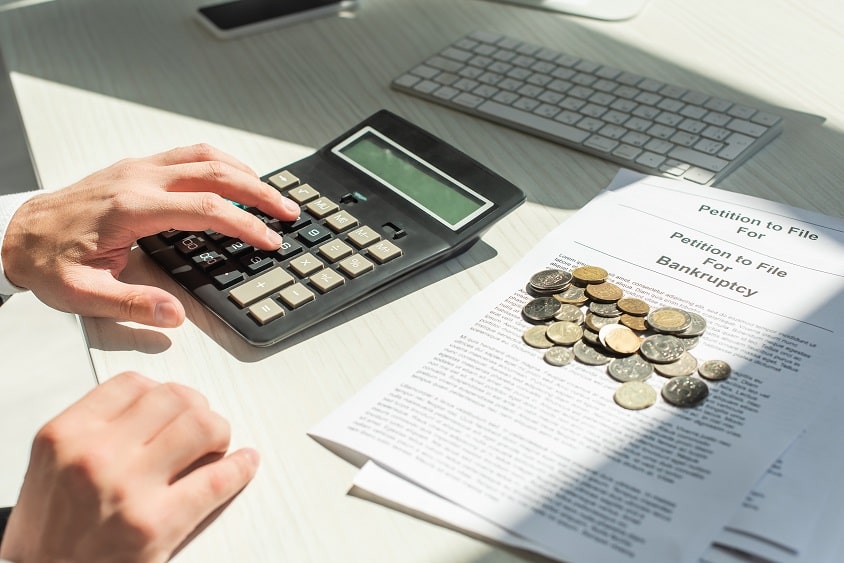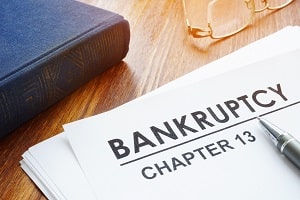Major Reasons For Bankruptcy Dismissal
Bankruptcy dismissal is terrible news when you are seeking legal relief for your debts. From 2016 to 2020, millions of Americans filed for bankruptcy. It happens more often than you think, and it happens to everyone. However, you must be transparent in your documentation if you take this road. Also, you must comply with all federal and state laws governing bankruptcy and follow related regulations.
Otherwise, you are giving the court a strong reason for bankruptcy dismissal. One hint of deceit in your documents or one failure to comply with bankruptcy statutes can end your bankruptcy case.
Why file for bankruptcy in the first place? Is this option suitable for you?
Why People File For Bankruptcy
Bankruptcy should not be taken casually since it is not a quick scheme to bail you out of uncontrolled spending and large debts. People who are having difficulty keeping up with mortgage payments, or can’t repay, can resort to filing a petition for bankruptcy.
A positive outcome can significantly reduce dues or eliminate them entirely. It can also put a stop to harassment from debt collectors. In some cases, it can save homes from foreclosure.
Filing for bankruptcy is not without repercussions. For one, your credit score will take a major hit. Such damage can take many years to rebuild and will adversely impact your future chances to borrow money. It can also result in increased insurance premiums. In some instances, a bankruptcy record can hinder your chances of getting employment.
There is also the emotional impact brought by bankruptcy. Some people might gain low self-esteem and a pessimistic outlook on their finances. They may even lose hope of turning their situation around. Some may worry about the stigma attached to it and may fear being judged or shunned by family and friends. That said, bankruptcy goes beyond just money talk, it also might affect your mental health and personal relationships.
While filing for bankruptcy can provide a solution to financial troubles, it should not be done hastily. It is wise to consult with a trusted bankruptcy lawyer before making the decision.
Speaking with an experienced bankruptcy lawyer and taking credit counseling sessions are good investments before making the decision. If there is no other option but to file for bankruptcy, keep in mind that the consequences are not permanent. You can slowly rebuild your credit score and get back on your feet.

Types Of Bankruptcy
Not all bankruptcy cases are the same, and people file for bankruptcy for various reasons. Thus, bankruptcy is broken down into six different types.
- Chapter 7: Liquidation.
- Chapter 9: For Municipalities.
- Chapter 11: Business Reorganization.
- Chapter 12: For Family Farmers and Fishermen.
- Chapter 13: Reorganization.
- Chapter 15: For Foreign Creditors.
Chapter 7 and Chapter 13 are the most common types of bankruptcy cases, and a wide range of individuals can file them in court. These terms simply refer to the chapters of the specific section of the US Bankruptcy Code. For simplicity, this article will dwell more on the reasons for the dismissal of Chapter 7 bankruptcy and Chapter 13 bankruptcy.
Chapter 7 Bankruptcy
The most common type of bankruptcy for individuals is Chapter 7 which is also known as the liquidation or straight bankruptcy. This type seeks to “liquidate” or sell a debtor’s assets to pay all debts. After that, all unsecured debts are discharged, wiped out, or forgiven.
Individuals or some businesses can file for this type. It has the fastest path through bankruptcy, taking as fast as four months for the whole process to complete.
Chapter 7 follows a hierarchy when paying off debts with the amount secured from your sold assets. Unsecured priority debts such as tax debts or claims against the debtor are paid first before everything else. Secured debts such as a home mortgage are paid next. Unsecured debts such as credit cards or medical bills are the least priority. These are merely wiped out in case there are no more funds left from the liquidation process.
Not everyone can qualify for Chapter 7 bankruptcy. It is up to the court to determine if your income is not enough to pay off your debts. The court uses the means test to take a look at your finances. If your income fails the means test then you may qualify for Chapter 7. You will have to attend a meeting with everyone to whom you owe money, including creditors. Failure to do so can merit a bankruptcy dismissal.
There are debts, however, that a Chapter 7 bankruptcy cannot erase. A student loan is a good example. Also, it cannot relieve you of dues mandated by the government such as taxes, child support, or alimony.
While Chapter 7 can erase some debts, Chapter 13 bankruptcy presents a different path.
Chapter 13 Bankruptcy
Chapter 7 can wipe out your debts but Chapter 13 bankruptcy reorganizes debts. Also known as a wage earner’s plan, it is simply a repayment plan duly approved by the court. In this type of filing, a debtor keeps his assets in exchange for having a longer payment period that can take three to five years to complete.
The good news about Chapter 13 is that it lets you keep your assets. It can even stop foreclosure by giving you the chance to catch up with your monthly dues.
Chapter 13 bankruptcy requires a debtor to submit a proposal to pay back creditors in three to five years’ time. The court will evaluate the proposal and ensure that the monthly repayment must give a significant amount to the creditors. Thus, it’s not just an arbitrary amount set by the debtor.
Also, the debtor makes monthly payments to a designated trustee. The payment is then distributed to the creditors. There is no contact between debtor and creditors under Chapter 13.
It is up to the court to decide how much you pay monthly, depending on your monthly income and how much debt you have. The court may even give you a strict budget order and check on your monthly spending. An individual with updated tax payments and who does not exceed the prescribed secured and unsecured debt amount can apply.
Note that it takes seven years for a Chapter 13 bankruptcy to leave your credit report. In addition, those seeking to file Chapter 13 should complete credit counseling to qualify.
Chapter 13 does not erase debts. For those who do not qualify for Chapter 7, the court may offer Chapter 13 bankruptcy as an option. It is a better alternative than a bankruptcy dismissal.
Difference Between Dismissal & Discharge
There are two possible results for your bankruptcy case. One is bankruptcy dismissal, and the other is bankruptcy discharge. The two terms may sound similar but legally they are nothing alike.
A bankruptcy dismissal happens when something goes wrong and the court decides to close your case. There is no legal relief in this kind of outcome. It happens for various reasons, such as improper or incomplete paperwork, failure to show up to the court hearing, or failure to provide the necessary documents.
The court may also dismiss your case if you do not qualify for the type of bankruptcy you are filing. Additionally, there is usually a cool-down period before you can refile. Thus, it is an act of prudence to get the services of Austin Bankruptcy Lawyers to avoid dismissal.
In contrast, a discharge means that the court has heard your case and decided to forgive your debts. This is the kind of outcome that every filer wishes to obtain. In a Chapter 7 case, it means giving the required information to the court and attending the meeting with creditors. After which, most or all debts are wiped out. In a Chapter 13 bankruptcy, it means upholding the terms of your repayment plan.
Five Common Reasons For Bankruptcy Dismissal
As mentioned earlier, the goal of all debtors in filing for bankruptcy is to get a discharge. However, it is also possible that the case ends up with bankruptcy dismissal. Here are five common reasons for dismissal.
Bankruptcy Fraud
When you fill out your bankruptcy paperwork, it is imperative you do it truthfully. All forms should correctly reflect all your assets, liabilities, income, and other financial information required by the court.Bankruptcy fraud is a serious criminal offense and offenders face heavy fines or even incarceration.

Failing The Means Test
The Means Test is a tool that evaluates your average income for the previous six months and compares it with the average income of a similar household. A Chapter 7 petitioner with above-average disposable income will get a dismissal. In some cases, the court will suggest Chapter 13 as an option.
Failure To File Forms/Supporting Documents
The paperwork needed to file for bankruptcy includes the bankruptcy petition, schedules, and other official forms. Supporting documents include tax returns, pay stubs, or bank account statements. Submission of these is mandatory. Otherwise, the bankruptcy court can dismiss your petition.
Failure In Chapter 13 Payments
Failure to comply with the repayment plan duly approved by the court can end up with a Chapter 13 bankruptcy dismissal. The repayment plan typically lasts three to five years. The filer needs to be faithful with their monthly repayment. Failure to do so could merit a bankruptcy dismissal. Not Attending Meeting With Creditors
If you file for Chapter 7 or 13, a meeting with your creditors is necessary. It gives chance to the designated trustee and creditors to ask questions about your bankruptcy documents and finances. The whole meeting is done under oath. You face bankruptcy dismissal if you are a no-show in this meeting.
What A Bankruptcy Dismissal Means For You
Filing for bankruptcy may seem overwhelming but it is not as scary as it sounds. Debt discharge should be the end goal and not bankruptcy dismissal. A dismissal does not grant a reprieve from debts, and you are back to square one in facing debt collectors.
& Let’s Discuss How We Can Best Help Eliminate Your Specific Financial Struggles!




